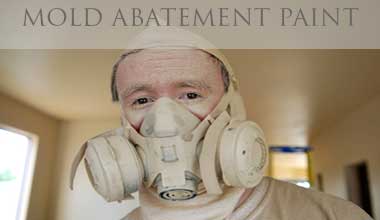Dilution for Interior Penetrating Oils
- Penetrating Oils
- Film Forming
- Wood Polish Wax
Why Dilute? Earthpaint provides High Density wood finishes. This means that you get more resin and solids in each gallon rather than solvent and filler. It is the resins and solids that provide protection. This is part of the reason our wood finishes survive so well. Useless fillers and solvents do nothing to protect wood. Wood loves dense tree resins and plant oils. The more the better. However, not all wood will soak it up. It has to go into the wood to work. Not lay on the surface. This is where dilution comes in. We add a little bit of natural solvent so that certain woods can drink up the nourishment they need.
MACHINE BUFFING WOOD FLOORS: Dilution usually helps to create more slip and better penetration. Generally, the buffer will be able to warm and push all of the finish into the wood even when used pure. But if some solvent is added the machine has less friction and can turn easier.
WOOD STAINING: Dilution usually helps with Wood Staining. 1/2 to 1 quart per gallon can make staining wood faster and easier.
RUBBING OILS: Dilution usually does not help to apply rubbing oils. This is because they are being wiped down after application. Therefore, an undiluted application will not lay on the surface and cause a lack of uniformity. All of the products work best as rubbing oils if they are not diluted and are used pure. The only thing to look out for here is to make sure they are wiped down with a dry rag after application. Do not leave product on the surface. There is not one set rule here so if you want to add a little solvent it is entirely up to the user.
DILUTION: General Ratio is 4:1. 4 parts wood finish to 1 part solvent.
NATURAL SOLVENTS: Pure Citrus Solvent, Corn Solvent.
TEST: Brush, wipe or use a foam roller to apply undiluted product onto the wood in a test area. Back brush product into the wood or wipe down with a dry rag shortly after application. The next day the wood should have an even, FLAT sheen. No shiny spots. If there are shiny spots or all of the product did not enter the wood fully then the product should be diluted and / or wiped down better.
AVOIDING DILUTION: If for some reason you would rather not dilute the product you can avoid dilution. To do this simply wipe the surface clean after application. The wood will absorb the nourishment it needs. What it doesn't need can be wiped up. Multiple coats can be applied in this manner. Eventually the wood becomes so saturated with dense resins that it no longer accepts any finish. This is when you know the wood is well coated and ready for it's new home! Some of the most luxurious, exquisite wood finishes are applied in a similar manner.
CORN SOLVENT is a fast drying, biodegradable- bio based solvent. It is considered environmentally benign. It can be made from bio mass but our corn solvent is made from corn primarily. It is the strongest solvent we offer. It is stronger than Citrus Solvent and has many uses including pharmaceutical, food additives and fragrances. Corn Solvent can be formulated to replace nearly 80% of petroleum based solvents including MEK and NMP.
PURE CITRUS SOLVENT is a biodegradeable - bio based solvent. It is derived from citrus peel waste created mostly during juice production. Citrus Solvent is superior to mineral spirits and is not dependent on petroleum feedstock. Our Pure Citrus Solvent is d limonene which is used in foods and fragrances in various forms.
INSTRUCTIONS ARE ON THE BACK LABEL OF ALL PRODUCTS.


